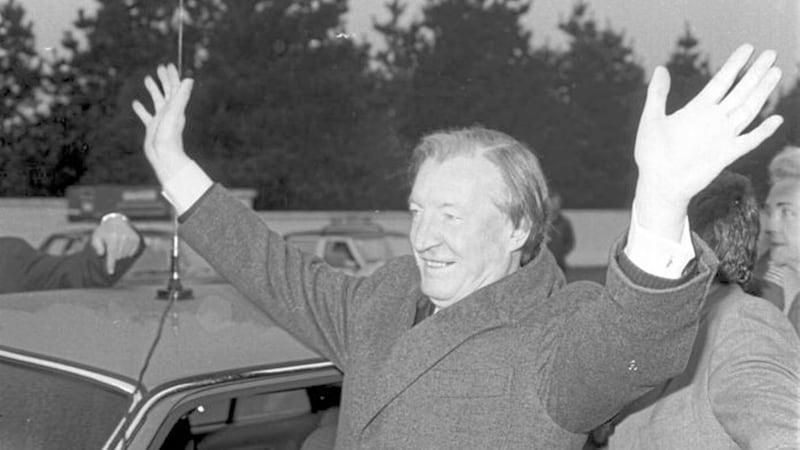EACH year 'state papers' from decades back are released here and in Dublin and each time there is something mildly surprising or, very occasionally, shocking.
Is the release worth covering? Oh yes.
What governments make public is no more than the public is due and almost invariably much less than the whole story.
If the custom had not become an iron habit the official instinct would be to hide or at best withhold. Rough drafts of history might be too generous a description of what can be understood from the contents. But better out than in.
Last week's batch had enough quirky items, and enough giveaway language, to bear out the general rule.
It wasn't a shock to read, for example, that in 1988 Taoiseach Charles Haughey wanted the British government to fly the bodies of the Gibraltar Three directly to the north.
The daylight killings by plainclothes soldiers of unarmed IRA members played badly abroad.
No Taoiseach during the Troubles wanted an IRA funeral procession through the Republic, inflaming passions, handing Sinn Féin propaganda material. It was a tussle for which state could maximise their own interests.
That a British official described an angry, emotional Haughey as ruled by "a set of vague, deep green principles" said as much about British officialdom as about the Taoiseach, a man whose principles baffled other, more informed observers then and since.
But then the same senior Northern Ireland Office figure wanted Haughey and his own prime minister Margaret Thatcher to meet more often, to further the workings of the Anglo-Irish Agreement.
There are moments in many documents when the suspicion arises that the writer may be having a giggle.
How else to understand the assertion by one Alan Whysall that Mrs Thatcher "potentially has the most influence with Mr Haughey... he clearly admires and also fears her (and the Irish people, we should not omit to tell her, admire no one more, save the Pope and Mother Teresa.)" Ah come on.
What British and Irish governments knew or thought they knew about lives here then, and how their attitudes were shaped, may enlighten and sometimes dismay for a while yet
'State papers' as released are an assortment. They have always included cabinet minutes from the old Stormont, Downing Street, Dublin, occasionally notes from one head of government to another, records of conversations between senior diplomats, civil servants and ministers.
How senior officials talk between themselves and how they present 'facts' to their political bosses give all sorts of clues.
The bulk of the papers on release for at least the next few years will all date from 'the Troubles'.
What British and Irish governments knew or thought they knew about lives here then, and how their attitudes were shaped, may enlighten and sometimes dismay for a while yet.
The yearly releases also generally contain what can only be described as tittle-tattle, though the highly-paid tattlers report with solemnity.
So a 1990 dinner table conversation hosted by the NIO with west Belfast priests was written up as covering unemployment, a 'dependency culture', the lack of organisation in the SDLP - regrettably a party of individuals - and a clerical conviction that the IRA was primarily intent on maintaining "its position for financial gain".
A year later, as Eamon Phoenix reported from the Public Records Office last week, a senior NIO man ventured into west Belfast.
The report by a Peter Bell of the 'Security, Police and Ops division' did not say if a friendly priest came along as guide.
But Bell found himself in "an alternative universe". He was afraid only once, in Ballymurphy, "as frightening as it was depressing" and "capable of serving without alteration as a Derek Jarman film set".
But then the Rough Guide to Ireland had also found this the most depressing part of "the entire city".
No children appeared to be at school, but "it turned out to be Ascension Day". He thought it must be awful to live up against a peaceline but anecdotes of sectarian attacks "intensified my sensation of having peered into another world" and convinced him the walls must remain.
The report was written for colleagues, hence presumably the flights of fancy.
NIO officials of the time did not live in west Belfast, though a couple of lower rank than Bell may have been born there. Amid the chuckles, were there quiet native groans?
The author was a scholarly chap, returned to Oxford after the NIO and produced a "dissertation on social conflict, chiefly during the reign of Justinian I, that reflected his personal experience of government in N. Ireland and elsewhere".
Or so says an 'Oxford Centre for Late Antiquity' website - which is also, possibly, a joke.








